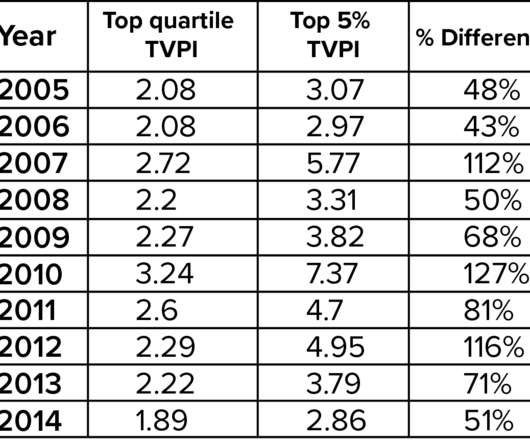The Changing Structure of the VC Industry
Both Sides of the Table
JULY 23, 2014
Limited Partners or LPs (the people who invest into VC funds) have taken notice as 2014 is by all accounts the busiest year for LPs since the Great Recession began. The “big boom” in startup financing started around March 2009?—?more and the bigger funds can’t get in directly. more than 5 years ago?—?and and hasn’t abated.
































Let's personalize your content